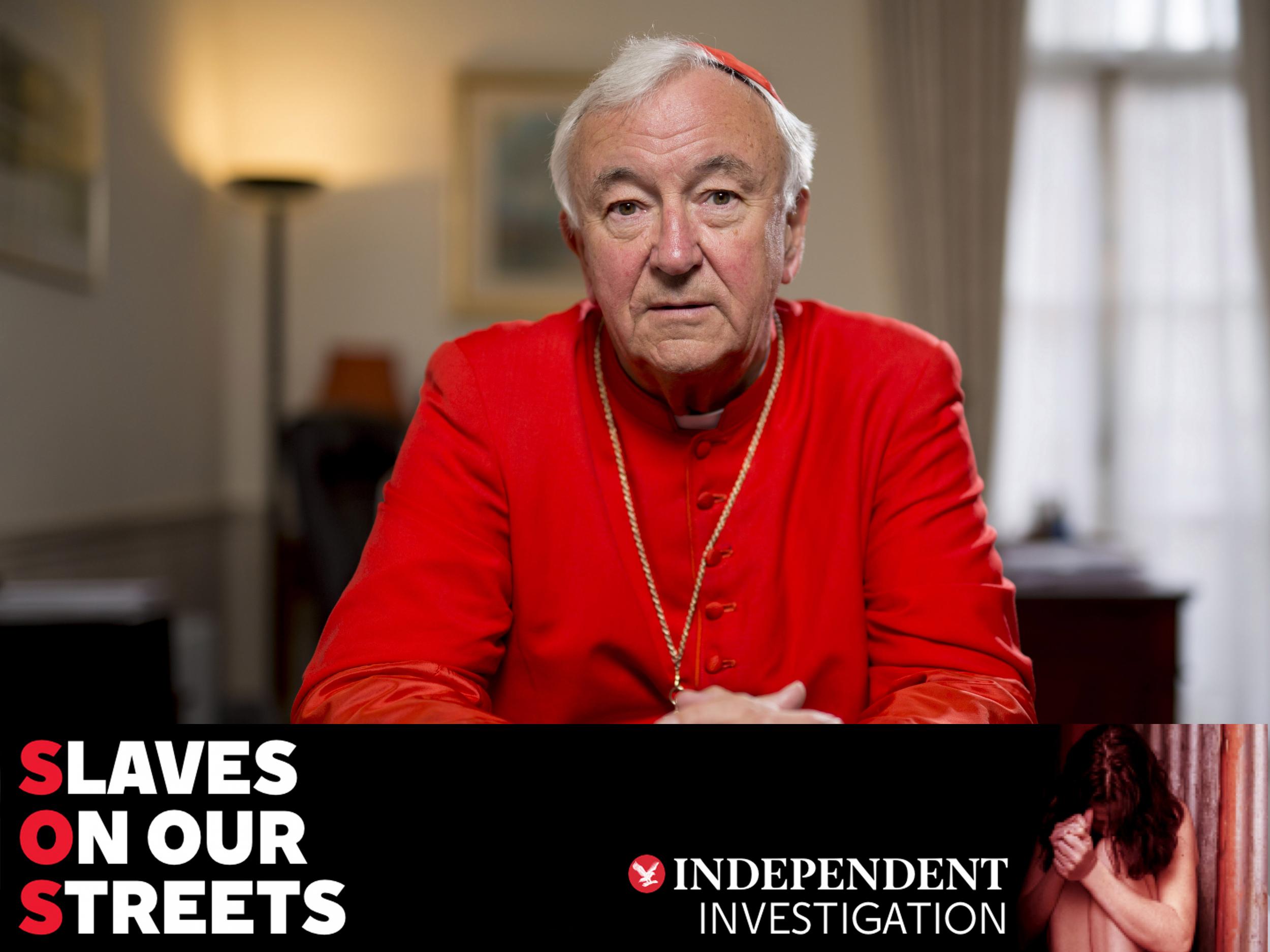Slaves on our Streets: How the Catholic Church is working with police to bring an end to modern slavery
Pope Francis considers exploitation 'a grievous wound in the body of humanity' and calls on all followers to take action in their communities

Your support helps us to tell the story
From reproductive rights to climate change to Big Tech, The Independent is on the ground when the story is developing. Whether it's investigating the financials of Elon Musk's pro-Trump PAC or producing our latest documentary, 'The A Word', which shines a light on the American women fighting for reproductive rights, we know how important it is to parse out the facts from the messaging.
At such a critical moment in US history, we need reporters on the ground. Your donation allows us to keep sending journalists to speak to both sides of the story.
The Independent is trusted by Americans across the entire political spectrum. And unlike many other quality news outlets, we choose not to lock Americans out of our reporting and analysis with paywalls. We believe quality journalism should be available to everyone, paid for by those who can afford it.
Your support makes all the difference.I first became really aware of modern slavery in 2012, when I heard Sophie Hayes [a victim of trafficking who wrote a best-selling book about her experiences] speak. I was amazed she was English, and had been taken to Italy to work as a sex slave. It questioned all the preconceptions I had that human trafficking was a problem elsewhere, an issue in other countries. After that, I became aware of what a hub for human trafficking London is, and it became even more imperative to understand it.
Then around the time of the London Olympics that year, the police were looking to co-operate with some of the religious sisters. Around these big sporting events a sex industry always moves in, and women who are virtually enslaved are imported. I noticed that religious sisters were doing a lot of the front line work supporting these women.
Later we had a public meeting about trafficking and a lot of Filipino women came. I realised that the Catholic community, being so diversified in London, has contact with a lot of trafficked women.
Kevin Hyland, who was then at the Met [he is now the Independent Anti-Slavery Commissioner] came to us looking for cooperation. Many of the sisters were not inclined to cooperate. The police tended to prosecute people we’d now recognise as having been trafficked, so Kevin had to work hard to convince them that his interest was not in prosecution.
Gradually a partnership was built, based on getting awareness, education and responsiveness around different communities. It was clear the cooperation between the resources of the Catholic Church and the police was a fruitful one.
We spoke to bishops and police chiefs in other countries and this initiative started in London, called the Santa Marta Group, began to spread. At our first meeting in 2014 Pope Francis came, along with police forces from 20 nations. At our most recent meeting, last year, there were over 30 police chiefs.
Pope Francis has been a very important figure in this. He’s worked with modern slaves for more than 30 years, so has a long awareness of it. When he was interviewed about it he described modern slavery as a grievous wound in the body of humanity – and therefore for Catholics a wound in the body of Christ. He said the world needs to learn how to weep again; and from that we understand the need to act.
At the end of that first meeting I was standing next to him, and he said: “You make sure this keeps going, because this is far more use than most of the meetings I have to go to.” So with a mandate like that I am motivated, but at the heart of this are the victims of this cruel, cruel trade and we must always remember them and put them first.
The Independent and Evening Standard have a unique reach. One of the hopes for this investigation, and this think tank, is that we can help to alert all sectors – finance, business, government, media – as well as people in London and more widely, so we can help to consolidate a response. We need to let people know what to look for, how to report it and how they can avoid giving business to these criminals. A person’s dignity is tied up with their work. If work is demeaning or exploitative it eats away at the core of that person, and their human dignity.
That is why I am pleased to be supported by the august people of this think tank. All of us need to work hard to help end this great scourge.
Cardinal Vincent Nichols is the Archbishop of Westminster
Join our commenting forum
Join thought-provoking conversations, follow other Independent readers and see their replies
Comments